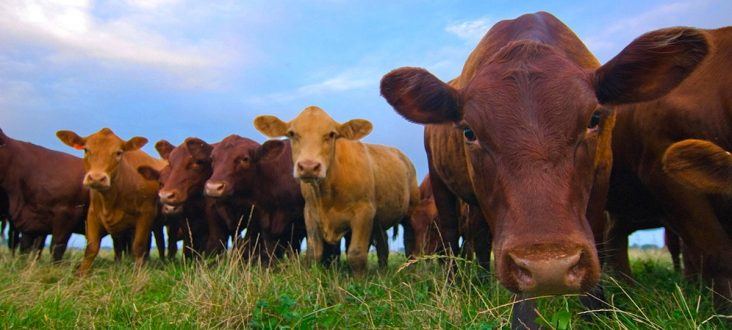U.S. House passes farm bill; Senate to soon consider its farm bill
by June 22, 2018 5:25 pm 471 views

It’s now up to the U.S. Senate to move on a farm bill after the U.S. House narrowly passed a farm bill that would remove millions from the Supplemental Nutrition Assistance Program (SNAP), better known as the food stamp program.
Thursday’s (June 21) U.S. House vote was 213-211 with 20 Republicans breaking to join the Democrats in casting no votes. A previous attempt to pass the bill in May failed.
Arkansas’ four members of the U.S. House voted for the bill, according to the official roll call. The bill will cost $430 billion during the next five years, according to the Congressional Budget Office (CBO).
The farm bill was first created during the Great Depression in 1933. It includes farm aid, the federal food stamp program, conservation programs, and other programs impacted by agriculture. It’s typically revised every five years.
The House bill cuts about $20 billion during the next 10 years from the SNAP. Critics argue the cuts will cause up to 2 million people to lose SNAP benefits. House Republicans want to spend billions less on SNAP than was spent on the previous farm bill that started in 2014, according to the CBO. It cost about $70 billion last year or about 80% of the annual outlay, according to the CBO. It offers food assistance to about 44 million Americans. Arkansas has more than 600,000 people on the SNAP rolls, according to the U.S. Census Bureau. An estimated $489 billion has been spent on the current farm bill.
Among the proposed changes to SNAP are revisions to able-body worker requirements. Most able bodied adults from the ages of 18-49 without dependents are not eligible for SNAP benefits unless they work at least 20 hours per week, according to the United State Agriculture Department. One provision in the bill would raise that age to 59 by 2021, and require them to either be working or in a training program for 20 hours per week. That standard will rise to 25 hours per week by 2026, according to the bill.
U.S. Rep. Steve Womack, R-Rogers, praised the bill’s passage.
“Agriculture is critical to the Arkansas economy, and the top two farm income counties in Arkansas are in the Third District. A vibrant farm economy is essential to the Third District, and farm policy plays a key role in the success of our farming community. I am pleased that this important legislation has finally passed the House after being caught in the crossfire of an unrelated issue last month, and call on the Senate to move swiftly to aid our nation’s producers,” he said.
U.S. Rep. Bruce Westerman, R-Hot Springs, supported the work requirement in the bill.
“One of the most notable changes in this farm bill is adding a work requirement for able-bodied, working-age adults without young children at home who receive SNAP benefits. There is no better anti-poverty program than a job. That is why we introduced this important language that requires work, technical education, or even volunteer service to receive these benefits. As I travel throughout Arkansas, I see a growing economy with record low unemployment and employers eager to hire. For these reasons, I was proud to cast my support for the 2018 Farm Bill,” Westerman said.
The Senate must now pass a bill, and then both chambers will reconcile a joint bill that President Donald Trump can sign before the existing farm bill program expires Sept. 30. Patrick Creamer, spokesman for U.S. Sen. John Boozman, R-Ark., told Talk Business & Politics the body will begin its farm bill debate next week. If the Senate and House bills can’t be reconciled before the deadline, Congress can pass a temporary extension of the current bill, he said.
The main difference between the two bills is that the Senate version doesn’t include the work provisions, according to a spokesman for U.S. Sen. Tom Cotton, R-Ark. How that will be resolved remains uncertain.
There were several farmer friendly provisions in the passed House bill that the Arkansas Rice Federation supports, Executive Director Lauren Waldrip Ward told Talk Business & Politics. The bill expands the definition of a family to determine the eligibility of actively engaged producers on the farm, tweaks the conservation title to decrease cumbersome paperwork while making the programs more accessible to producers, and changes to the trade title to maintain funding for international promotion programs such as the Market Access Program (MAP) and Foreign Market Development (FMD), she said. The bill includes a provision encouraging the U.S. Department of Agriculture to develop crop insurance endorsements for alternate wetting and drying and furrow irrigation practices.
“The Arkansas Rice Federation is sincerely grateful for the work and tremendous effort … this is a great step forward in the process to finalize a farm bill needed to provide long-term certainty for rice farmers,” she added.
